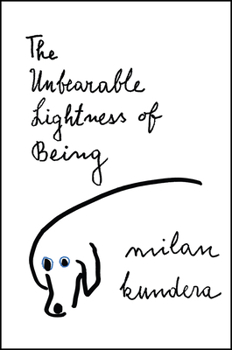The Unbearable Lightness of Being
Select Format
Select Condition 
Book Overview
International Bestseller - Winner of the Los Angeles Times Book Prize for Fiction
"Far more than a conventional novel. It is a meditation on life, on the erotic, on the nature of men and women and love . . . full of telling details, truths large and small, to which just about every reader will respond." -- People
In The Unbearable Lightness of Being, acclaimed author Milan Kundera tells the story of two couples: a young woman in love with a man torn between his love for her and his incorrigible womanizing, and one of his mistresses and her humbly faithful lover. In a world in which lives are shaped by irrevocable choices and by fortuitous events, a world in which everything occurs but once, existence seems to lose its substance, its weight. Hence, we feel "the unbearable lightness of being" not only as the consequence of our pristine actions but also in the public sphere, and the two inevitably intertwine.
This magnificent novel is a story of passion and politics, infidelity and ideas, and encompasses the extremes of comedy and tragedy, illuminating all aspects of human existence.







